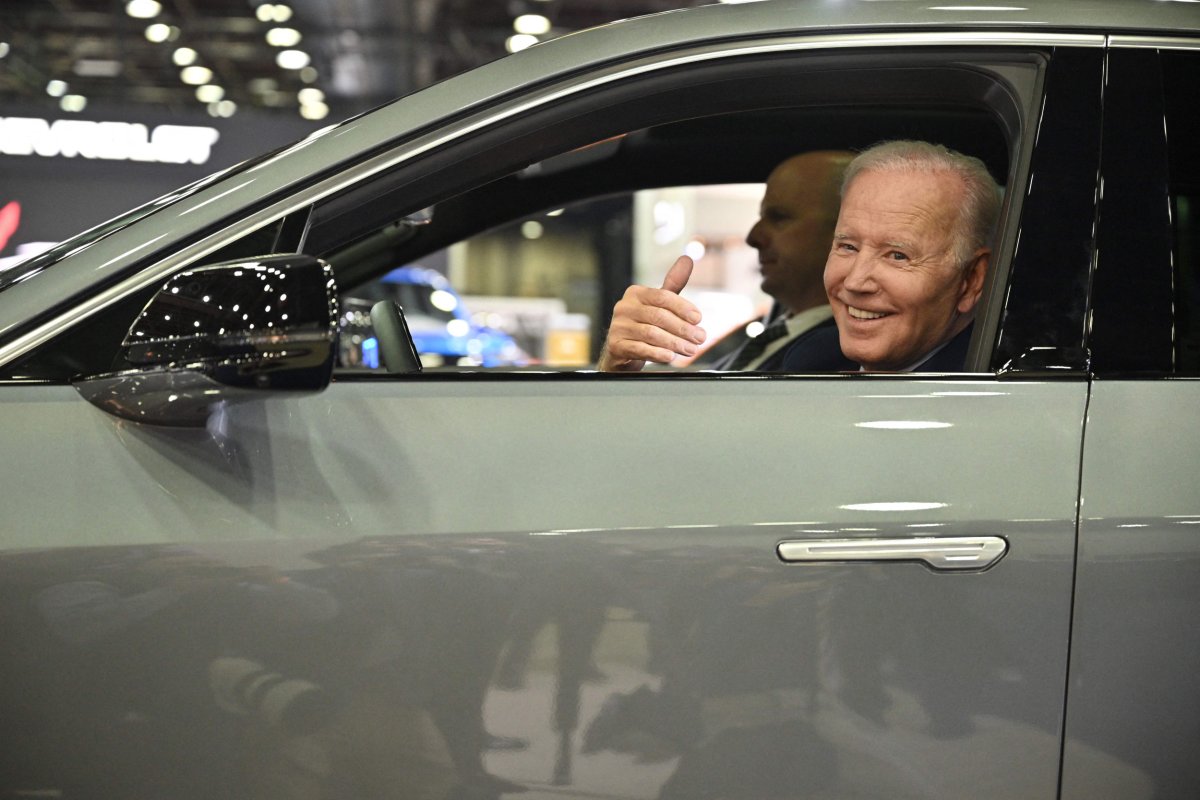President Joe Biden's administration announced Wednesday one of its most ambitious climate-related regulations with the nation's most stringent emissions standards for cars and trucks. The final rule will slash carbon pollution while providing the auto industry with a more flexible path toward its electric vehicle transition, officials said.
"These strongest-ever pollution standards for cars solidify America's leadership in building a clean transportation future and creating good-paying American jobs, all while advancing President Biden's historic climate agenda," EPA Administrator Michael Regan said at an event in Washington Wednesday.
The new tailpipe standards will apply to model years 2027 through 2032 and beyond, and the EPA estimates the new rules will help prevent more than 7 billion tons of carbon emissions causing climate change. The transportation sector is the country's biggest source of greenhouse gas emissions, and cars and trucks produce the bulk of that climate pollution.

Achieving the standards will require automakers to produce far more zero-emission EVs, and the electric-drive transition challenges the auto industry and the union that represents part of its workforce, the United Auto Workers.
The auto industry expressed concerns about meeting the early-year benchmarks for EV production included in the proposed rule the EPA originally put forward last year.
The final rule includes some adjustments to requirements in the first few years of its implementation to allow automakers flexibility as they make and sell more EVs.
John Bozzella, president and CEO of the Alliance for Automotive Innovation, joined Regan at the event in Washington and apologized to him for being "a thorn in your side" for the past year.
Bozzella's group represents many U.S. automakers, and he said that while they are on board with an EV transition, they wanted to make sure they could meet the rule's requirements.
"The future is electric," Bozzella said. "Automakers are committed to this transformation, investing enormous amounts of capital."
While sales of EVs have exceeded early projections and hit a record level last year, Bozzella said the market is "choppy" as car customers express concerns about price, vehicle battery range and the lack of a ready infrastructure for battery charging.
Bozzella said the EPA's changes to the final rule allow some automakers to rely more on sales of hybrids and plug-in hybrids in the coming few years.
The UAW also thanked the administration for "taking seriously the concerns of workers and communities."
During the union's seven-week strike against Detroit's Big Three automakers last fall, the UAW raised concerns that the shift to EVs could threaten union jobs because EVs require fewer parts and thus less labor. The settlement that ended the strike included provisions for union workers at some battery manufacturing facilities and assistance to workers switching from making internal combustion engines to making EVs.
"We reject the fearmongering that says tackling the climate crisis must come at the cost of union jobs," the UAW said in a statement supporting the EPA's final rule. "Ambitious and achievable regulations can support both."
The Biden administration has a lot riding on the EV transition's success. The new emissions rule comes on the heels of the warmest year in recorded history and as the country heads into a historic election where auto industry states such as Michigan could decide the presidential race.
In a report released Tuesday, the World Meteorological Organization confirmed that 2023 was the warmest year on record, capping the warmest 10-year period on record. Last year also saw record high ocean temperatures and record low ice cover in the Arctic, the WMO said.
The Biden administration is working to dispel long-held notions that climate action is at odds with economic growth, and White House climate adviser Ali Zaidi closed out the announcement event Wednesday by pointing out the billions of dollars in investments companies have made in EV and battery facilities.
"We're bringing that manufacturing capacity back to the U.S. and, by the way, bringing the jobs back too," Zaidi said.
About the writer
To read how Newsweek uses AI as a newsroom tool, Click here.



